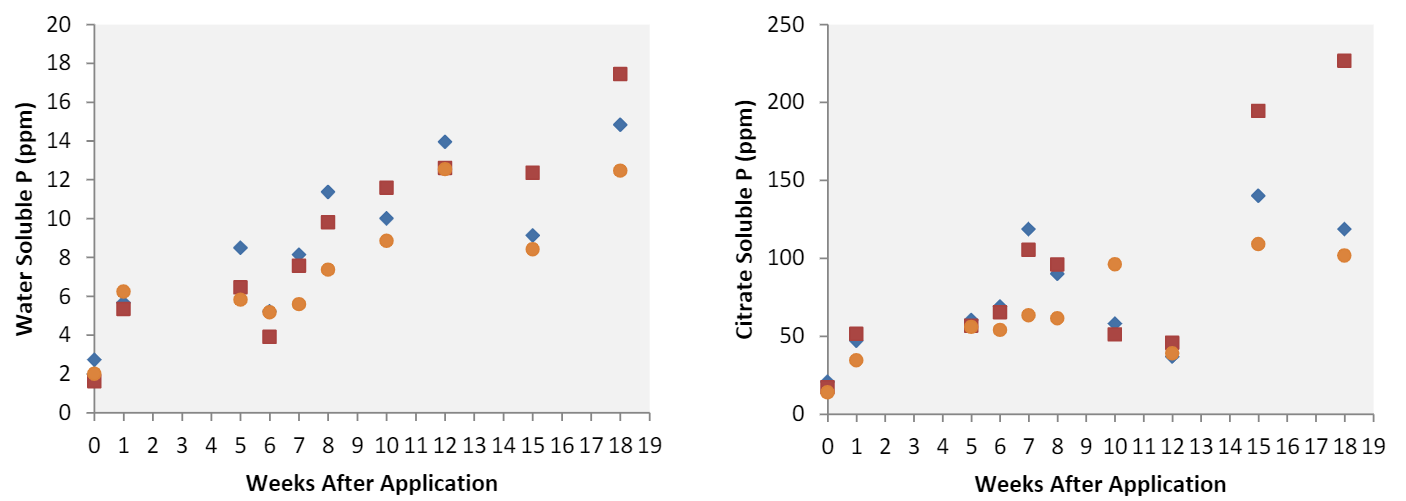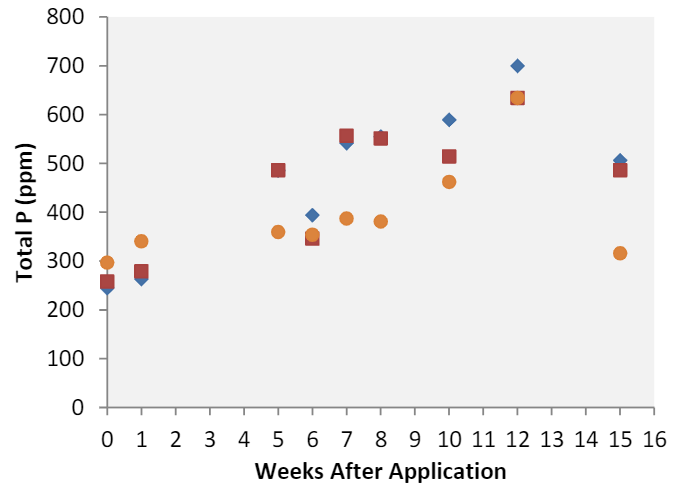This study shows the effectiveness of rock phosphate and sulfur in providing soluble phosphate requirements to the soil to meet the growing needs of plants under organic production. Sulfur improves the availability of phosphate more quickly from rock phosphate in non-acidic soils.
Micronized rock phosphate and PhoSul formulation containing micronized rock phosphate and sulfur were evaluated for phosphorous release in Mollisol soil-filled pots over an 18-week period with moisture maintained to field capacity. Treatments were applied at 50, 100 and 200 mg P/kg. The control treatment is untreated soil.



Summary
- All phosphate levels increased over time
- No significant differences until week 7
- Following week 7, water and citrate soluble P levels from both treatments were higher compared to control
- During the last 3 weeks, average water-soluble P and citrate soluble P concentrations from Phosul were significantly higher than control.
- Phosul showed the highest rate of increase in soluble P over the 18 week period.
Although Rock Phosphate provided increased levels of total and soluble phosphate to the soil; solubility of rock phosphate was further enhanced through the addition of sulfur in this experiment.
A more elaborate study was done by the Montana State University. This data reflects a simplified version of that study. This study is available upon request.
Related Resources
Enhancement of Phosphate Rock Solubility Through Biological Processes
US Patent: Biomediated Continuous Release Phosphate Fertilizer
US Patent: Microbial Solubilization of Phospate
The Definition of Mollisol